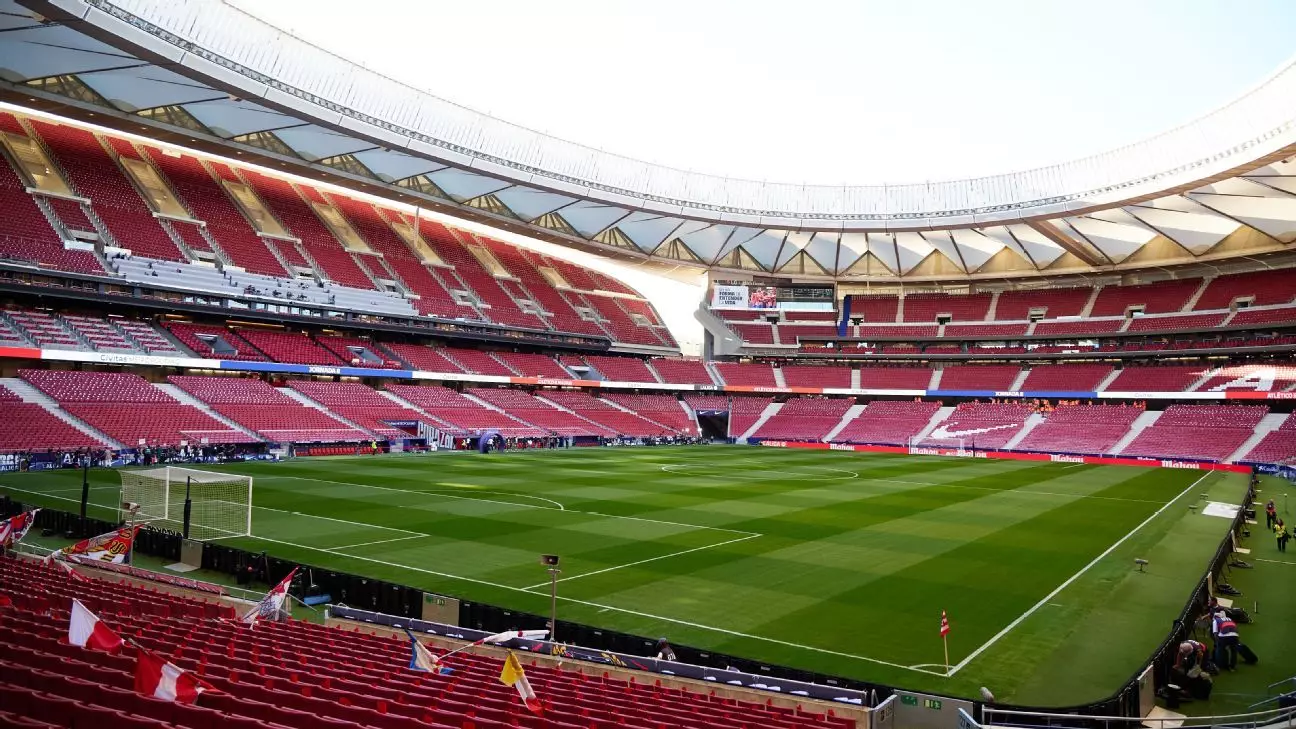In recent years, Saudi Arabia has made significant strides in enhancing its global presence through strategic investments in sports. The recent agreement with Atlético Madrid to name their stadium the Riyadh Air Metropolitano exemplifies this trend. With a multi-year contract worth considerable financial backing, this partnership goes beyond mere branding; it marks a deliberate effort by the kingdom to leverage the popularity of European sports to amplify its own reputation on the world stage. This article examines the implications of this deal not only for the involved parties but also for the broader geopolitical landscape.
As Atlético Madrid continues to evolve as a competitive football club in one of Europe’s top leagues, the financial implications of this new deal cannot be overlooked. The club’s successful relationship with Saudi Arabia began with Riyadh Air’s sponsorship last season, setting the stage for this latest partnership. While the exact figures of the naming rights deal remain undisclosed, reports suggest that it positions Riyadh Air as the most significant sponsor in Atlético’s history. The previous agreements, including a substantial €40 million a season for shirt sponsorship, indicate the lucrative nature of partnerships with Saudi entities.
This financial influx provides Atlético Madrid with resources to enhance its operations, invest in player acquisitions, and improve the stadium experience for fans. Furthermore, it reflects a trend wherein clubs are prioritizing long-term partnerships that promise substantial economic benefits, especially from regions eager to expand their influence in the sports sector.
Saudi Arabia’s initiative to host the 2034 World Cup aligns with its broader Vision 2030 project aimed at diversifying the economy away from oil dependency. The establishment of Riyadh Air serves as a testament to the country’s commitment to improving its domestic and international image. Sports play a crucial role in this vision, as hosting global events like the World Cup can spur investment, tourism, and infrastructure development.
However, the kingdom’s ambitions come with significant scrutiny. Reports of human rights violations and the treatment of migrant workers in the country cast a shadow over its sporting endeavors. A global union organization has even filed complaints, calling attention to these human rights abuses. Critics argue that while Saudi Arabia seeks to build a modern image through sports, underlying issues in labor practices remain a persistent challenge that could impact its reputation.
The partnership between Atlético Madrid and Saudi Arabia extends beyond commercial interests; it has profound geopolitical consequences. The CEO of Atlético, Miguel Ángel Gil Marin, serves on the board of the European Club Association (ECA), a powerful body that influences FIFA negotiations. As the key stakeholders in the football community, ECA members will play a crucial role in determining the schedule for the 2034 World Cup.
Moreover, the involvement of other prominent clubs such as Roma, which also has ties to Saudi Arabia through sponsorships, illustrates a broader strategy of ingraining Saudi influence in European sports. This strategy not only amplifies Saudi Arabia’s voice within the global football community but also consolidates its position as a key player shaping future sporting events.
As Saudi Arabia pushes forward with its sporting ambitions, it faces the intricate task of balancing its image with ethical considerations. Investments in clubs like Atlético Madrid may open doors to international recognition and legitimacy, but they also attract scrutiny regarding the means by which this image is crafted. The push for modernization through sport must be tempered with genuine improvements in human rights and labor conditions, without which the kingdom risks becoming a target of international backlash.
Saudi Arabia’s naming rights deal with Atlético Madrid represents more than a lucrative financial agreement; it is part of a broader narrative that intertwines sports sponsorship, geopolitics, and social responsibility. As the world watches how this partnership unfolds, it will be crucial for both sides to navigate the complexities of this new relationship, ensuring that it leads to mutual benefits rather than merely retaining superficial appearances. The ongoing developments in this partnership will serve as a litmus test for the intersection of sports and international relations in an increasingly interconnected world.

Leave a Reply